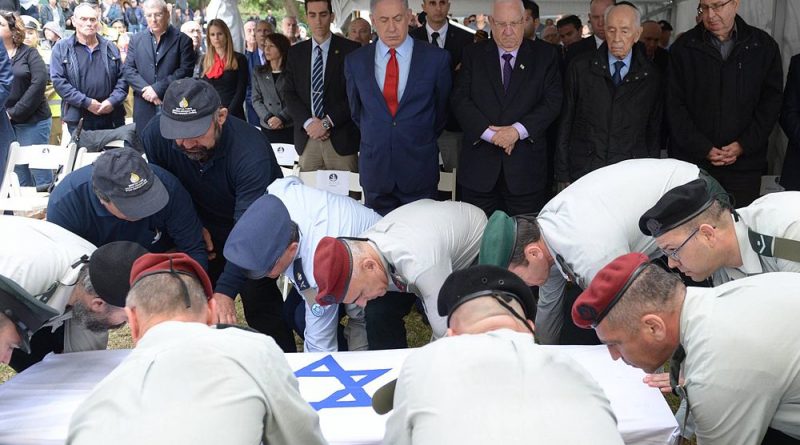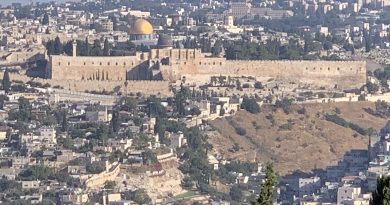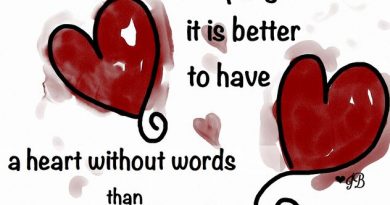Yom Kippur 5777: Yom Kippur as Dress-Rehearsal for Death
The most powerful Yom Kippur of my life was six years ago.
The most powerful Yom Kippur of my life was six years ago.
I wasn’t leading services in front of a crowd of 600 or 700 people.
I wasn’t leading services on a cruise ship, which I’ve done.
I wasn’t at the Western Wall or one of the many very “spiritual” synagogues in Jerusalem.
I was praying alone. In a hospice in Denver, Colorado, in a building surrounded by people who were dying – one of whom was my mother.
I had only been home in Jerusalem from visiting my Mom in Denver for less than a week when we had a conference call with her caregivers. Her health was deteriorating; further chemo probably would do no good, and she wasn’t strong enough for it in any event. She didn’t want any more tubes and any more pain. The decision was made to move her to a hospice.
It was two days before Yom Kippur. I knew I was going to need to go to Denver. I was debating whether I should leave immediately or wait until after Yom Kippur, so I could spend the holiday with my family in Jerusalem (after all, at the end of every Yom Kippur service, we say “Next year in Jerusalem!”). I also had some things from work hanging over my head that I needed to deal with on the day after Yom Kippur. My ever wise then-wife said “What are you waiting for? What’s more important?” She was, as usual, correct. I immediately booked myself on the next flight out – 5:30 the following morning.
I arrived the day before Yom Kippur. Even if I wanted to leave to go to services, there was no synagogue within walking distance of the hospice. I was going to be spending Yom Kippur at the hospice. I called a rabbinic colleague and borrowed some machzors and a shofar. My two oldest daughters were on their way, they at least would pray with me part of the day.
Kol Nidre evening a few people joined me; I didn’t have a minyan, and at the start not even a “beit din” of three Jews, but I still sang Kol Nidrei and the Barchu. My soul simply needed to hear those melodies that start the holiday. I’m pretty sure God forgave my breach of protocol.
The following morning around 7 I went to the chapel and started reciting the Yom Kippur morning liturgy by myself. Alone in the chapel, wearing my kittle and tallis, just me and a prayerbook standing in the awesome presence of God on the most awesome and scary day of the year. Very early in my prayers I came to the line in Psalm 51 “The sacrifices of God are a broken spirit; a shattered and contrite heart, O God, you will not despise.” And I lost it. Tears came down my face as I thought of being in a hospice, not being with my Mom on her balcony for our early morning coffee ritual. I cried out to God, “Is my heart sufficiently shattered, Lord? Is my spirit sufficiently broken?”
As I went through the prayers there were many lines that jumped out at me with a new urgency:
The days of our years are seventy; or if, because of strength, they are eighty years, yet their pride is but trouble and wretchedness; for it is soon cut off, and we fly away.
My Mom was 74.
At the end of the central prayer of the service, the Amidah – after beating my breast and reciting the communal sins, beating my breast a little harder for the sins I knew I had personally committed I had one of the most powerful prayer experiences of my life. At the end of the Amidah, as advised by the Talmud, I always add a personal prayer, in my own words, and my words and prayers came spilling out of me, uncontrolled, in a great torrent of confused emotion, with many tears, I didn’t even know what to pray for:
Oh God, please let her live…but she’s in hospice it’s her time…but we are told never to despair, even when the sword is on our neck, like King Chizkiyahu turning to the wall…please God, give her some more time with us…please God, just keep her comfortable for whatever time she has..oh God, I don’t know what’s best for her, you do, please do what’s best for her, but don’t let her suffer, take her with a kiss like Moses…and me God, I know I have not lived up to my potential, I know I have not fully applied the many gifts you bestowed on me in Your service, give me another year, I’ll keep trying to do more to be better, to be as “Barry” as I can be, to be a better father/ husband/ relative/ friend/ rabbi/ leader…
After all that, I was exhausted. Emotionally drained.
My mother hung on for a few more days, passing away on the first day of Sukkot, a day when we’re commanded to be joyful, which my daughter Devorah said means she wants us to be happy when we think of her.
It’s obvious what made that prayer so powerful – the words that we’ve been praying throughout the High Holidays include pleas for our lives. “Remember us for life, Sovereign who desires life.” Until that day, those words mostly seemed abstract, distant. That day was different. I was most very definitely praying as if my life depended on it. As if my Mom’s life depended on it.
Which is really what the liturgy is designed to do.
Yom Kippur is, in many ways, a rehearsal for our death. We don’t eat, we don’t have marital relations, we forgo physical comforts. It’s traditional to wear a white kittel, similar to the shrouds in which we are traditionally buried.
If Yom Kippur is a rehearsal for our death, how is it that we prepare for that inevitable moment?
It can help to picture it. It can help to imagine, “what if?”
On January 28, 1986, the space shuttle Challenger was destroyed. All seven astronauts on board were killed. However, contrary to what many people think, the shuttle did not “blow up.” One of the booster rockets blew up, but the crew compartment of the shuttle remained intact. The crew cabin was found in one piece, with the seven astronauts still strapped into their seats. Three of the four emergency air packs found had been deployed, which is a manual operation. At least some of the astronauts were therefore very likely conscious for the three minutes or so it took for the crew compartment to fall out the sky. They all were definitely killed by the impact with the water.
What were they thinking for those three minutes?
In a Yom Kippur sermon he gave on the subject, Rabbi Ken Berger said they probably thought of three things, each a sentence beginning with “if only…”
If only I’d known the last time I said goodbye was going to be the last time I said goodbye to the people I love. How much more intensity would I have put into that goodbye. How much more clearly I would have made sure they know how much I love them.
One of the 9/11 stories that always chokes me up is the story of a man, about my age, trapped on one of the floors above where the plane hit. He called home and said to his wife, “Honey, something terrible is happening, I don’t think I’m going to make it. I love you. Take care of the kids.”
Can you imagine the love and feelings that were poured into that one short phone call?
Rabbi Berger speculated that the second “if only” would be
If only I realized what I’d had, the blessings I’d had while I had them.
Rabbi Berger told about his son Jonathan, who at age five experimented by dropping his mother’s ring down the drain of the bathroom sink. His father was furious; but Jonathan said, “Don’t be so mad—you’re lucky to have me!” How often do we forget to be grateful for the many blessings in our lives?
And the third “if only:”
If only I had another chance, I’d do it better, I’d love them more intensely.
I can tell you as a rabbi, no one on their death bed ever says “I wish I’d spent more time at the office.” If people have any regrets as they are leaving this world, it’s generally that they didn’t work hard enough to make the people they love – wife, husband, children, friends – a higher priority.
We rabbis often write the sermons we write because it’s a message we ourselves need to hear. An issue we ourselves are grappling with.
I wonder whether Rabbi Berger had been able to follow his own advice.
Less than a year after he wrote that Yom Kippur sermon, Rabbi Berger, and his Israeli-born wife Aviva were killed in a plane crash outside Sioux City, Iowa. What was it like for him during that final moment in his life, as his plane was hurtling toward the ground? Had he managed to follow his own advice? Had he let his three children, then ages 20, 17, and 10, know how much he loved them? Had he appreciated the many blessings in his life? Did he love them as intensely as he was able to?
Reflecting on our own mortality should inspire us to reflect on our priorities. What are the things that are important? Are we making time for the things that are really important, or only for the things that are “urgent?” Or that seem urgent, whether or not they actually are urgent? Our electronic devices bleep and buzz in a way that demands our attention, as if they are trying to tell us something urgent. All too often, it’s not urgent. “Bleep,” look at me now!!! The cell phone demands. And what is it? Junk mail. A picture of a cat. And that junk mail or cat picture may have distracted you from the live human sitting in front of you.
Think about this for a moment. What if today, right now, you were told that you had a year to live. That you were going to die just before Yom Kippur starts next year. What would you do differently? How would you live your life?
Now I know this isn’t a realistic question. You can’t really live your life that way. I’d quit my job and spend the next year with my family, with my friends, travelling, and writing a book. And in the process I’d blow through my retirement funds.
But that wouldn’t be prudent. According to the Social Security Administration’s website, my life expectancy is to live another 21 years. If I spend it all in one year, what I will do with the other 20?
But even if you don’t want to blow through your retirement funds in one year, thinking about how you would spend that year can help you identify your priorities. Identify the things that are important to you. And adjust your priorities accordingly.
- Have a relationship with a loved one that’s broken and that pains you? Call them. Now.
- In a bad marriage? Fix it or get out.
- Hate your job? Find a new one.
- Want to write a book? Sit down in front of your computer or typewriter or get out a pad of paper.
- Want to paint? Pick up a brush.
- Working your butt off to climb the corporate ladder or grow your business to buy your family stuff? Ask them what they’d rather have: a bigger house, or more time with Mom. You probably know the answer to that one already.
Rabbi Alan Lew z”l, described how in his years as a hospice chaplain he saw dying people achieve a level of clarity they weren’t able to attain earlier. He writes,
As death approached, even the most ordinary people often acquire the ability to sum up the truth of their lives, often in a single heartbreaking sentence. “I married the wrong man, and I lived without love all my life,” one woman told me during the last hours of her life. “I never wrote that book I always meant to write,” a dying man told me. “This life was a precious opportunity and I squandered it.”
What this holiday is about is sparing us from such moments on our deathbed, by challenging us to confront our mortality while we still have time to do something about it.
The Birmingham Jewish Community recently had a heart-rending reminder that this dress rehearsal for our deaths is real.
You may not have as much time as you think you do.
Any of us could die in the next year. Some of us WILL die in the next year.
A week ago Sunday Justin Cohen dropped dead of a heart attack while mowing his lawn in Homewood at the age of 42.
I spoke to his father Mark a few days ago. Justin was a healthy man. He did all the right things. He visited a doctor regularly. He exercised. There was no warning whatsoever.
Rosh Hashanah and Yom Kippur call on us to ask ourselves: “What if that was me? What if I have a year or less to live? Would I have any regrets? Am I living the life I want to live?”
G’mar chatimah tovah




